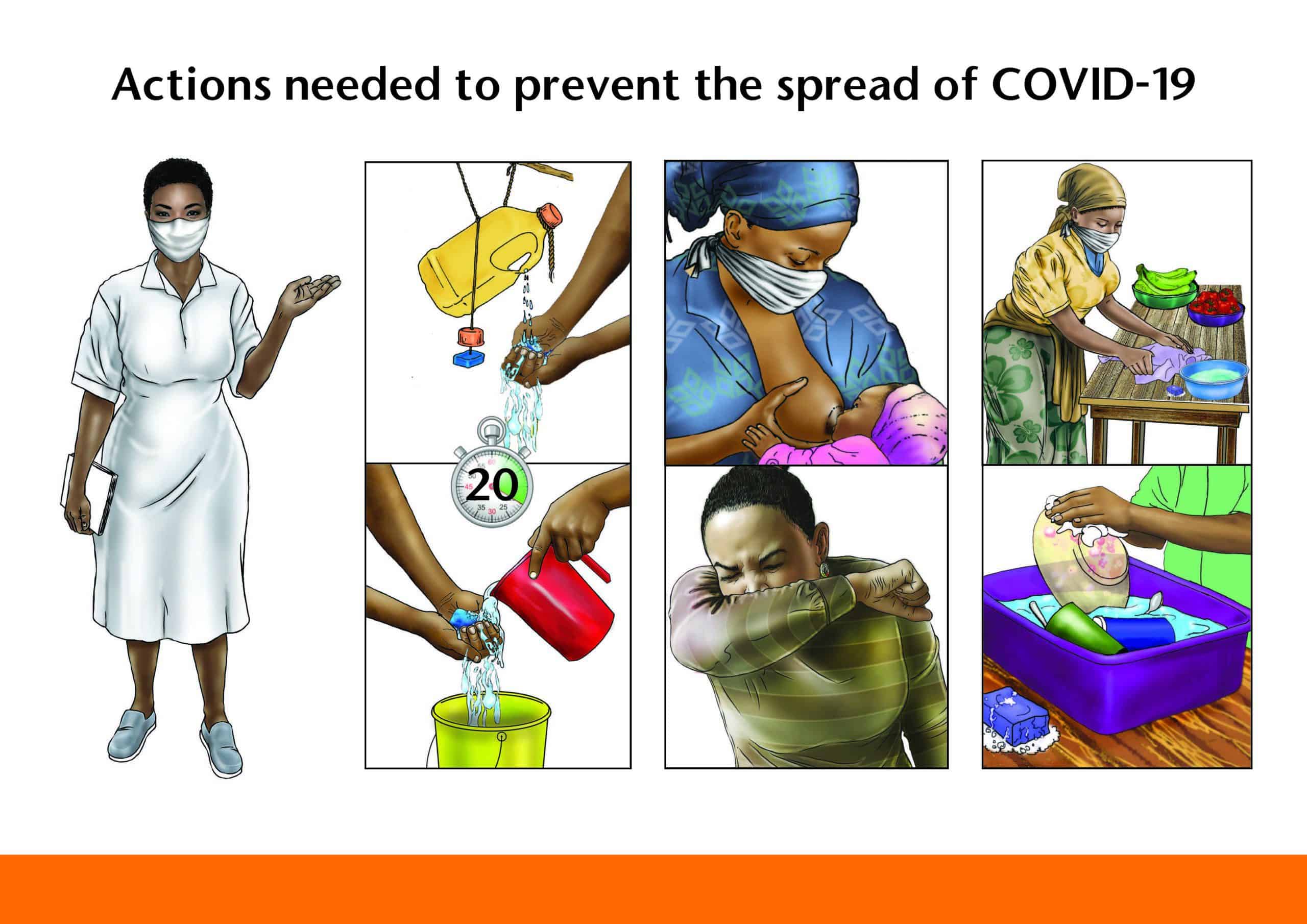Continuing Safe Breastfeeding During COVID-19: An Emergency Response to Combat Misinformation
August 6th, 2020 | viewpoint
As the novel coronavirus began to spread in the early days of the pandemic, its effects were unprecedented. Many in the global nutrition community immediately recognized the danger of misinformation and more specifically how it could derail decades of progress on exclusive breastfeeding around the world. Experience from the HIV epidemic in the 1980s and 1990s taught us that rumors and myths about COVID-19 could result in major setbacks for national breastfeeding programs that would be difficult to reverse.
“Alarms went off for a lot of us when we first heard COVID-19 was making its way around the world,” said Peggy Koniz-Booher, senior nutrition and social and behavior change advisor at John Snow, Inc. “From the first days of the pandemic, people asked ‘What are we going to tell mommies? What messages need to get out through the health system and social networks to stay ahead of this?’”
Recognizing the need for a rapid response, WHO and UNICEF called on infant and young child feeding (IYCF) experts to form working groups with the goal of applying evidence and experience to guide IYCF during COVID-19. USAID Advancing Nutrition, the Agency’s flagship multi-sectoral nutrition project led by JSI, was in a unique position to support some of the rapid response.
“People in the nutrition community were asking for high-quality graphics that could be used to develop counseling materials and communicate messages about COVID-19 prevention and IYCF in low-literacy settings,” Koniz-Booher said. She directed members of one of the working groups to the IYCF Image Bank, a collection of illustrations originally developed by JSI and UNICEF for the Community Infant and Young Child Feeding (C-IYCF) Counselling Package and made available for adaptation through the JSI-led Strengthening Partnerships and Results in Nutrition Globally (SPRING) project.
Soon, people started contacting Koniz-Booher to ask questions about the Image Bank and for ideas on how to adapt the graphics to the COVID-19 context. USAID Advancing Nutrition was then asked to collaborate with UNICEF and members of the Infant Feeding in Emergencies Technical Working Group to create an IYCF and COVID-19 specific counseling package to counsel mothers and families when COVID-19 is suspected or confirmed.

These materials were designed and produced in a matter of weeks, all while staff at organizations around the world shifted from working in offices to homes. This was no easy feat, but this group of nutrition and social and behavior change experts were committed to getting these materials to communities quickly to dispel rumors and myths about breastfeeding in the context of COVID-19. For example, some people may believe that the virus can be passed through breastmilk or that mothers and infants should be separated at birth when COVID-19 is suspected, despite the fact that transmission via breastfeeding has not been demonstrated and separation can be harmful to mothers and children. The materials were field-tested in multiple countries with the support of all UNICEF regional offices and the Infant Feeding in Emergencies network in just 3 days—a process that typically takes weeks if not months.
Since that time, the materials have made their way around the world and been adapted to local contexts. In Kyrgyz Republic, planned in-person IYCF health provider trainings and subsequent household counseling were put on hold because of the pandemic. Recognizing the value of these materials and the ease with which they could be shared remotely, Nazgul Abazbekova, chief of party for USAID Advancing Nutrition Kyrgyzstan, led an effort to translate the counseling cards and recommended practices booklet into both Russian and Kyrgyz. The USAID Advancing Nutrition team and local in-country partners are now supporting rural outreach via SMS text, image sharing, and video calls. The outreach will be in partnership with a vast network of village health committees, health volunteers, and community mobilizers, all of whom will use the adapted version of the IYCF and COVID-19 counseling materials, among other tools, to continue counseling caregivers on best IYCF practices at a safe distance.
The IYCF and COVID-19-specific counseling package materials developed by the Infant Feeding in Emergencies Technical Working Group have been translated and adapted in over 20 countries, allowing health workers all over the world to continue supporting caregivers, families, and entire communities. The materials are available on the USAID Advancing Nutrition website, and have been downloaded over 18,000 times. Visitors from over 100 countries have viewed the web page and this has sparked interest in adapting the materials for various local contexts.
By Yaritza Rodriguez, Program Coordinator, USAID Advancing Nutrition
We strive to build lasting relationships to produce better health outcomes for all.